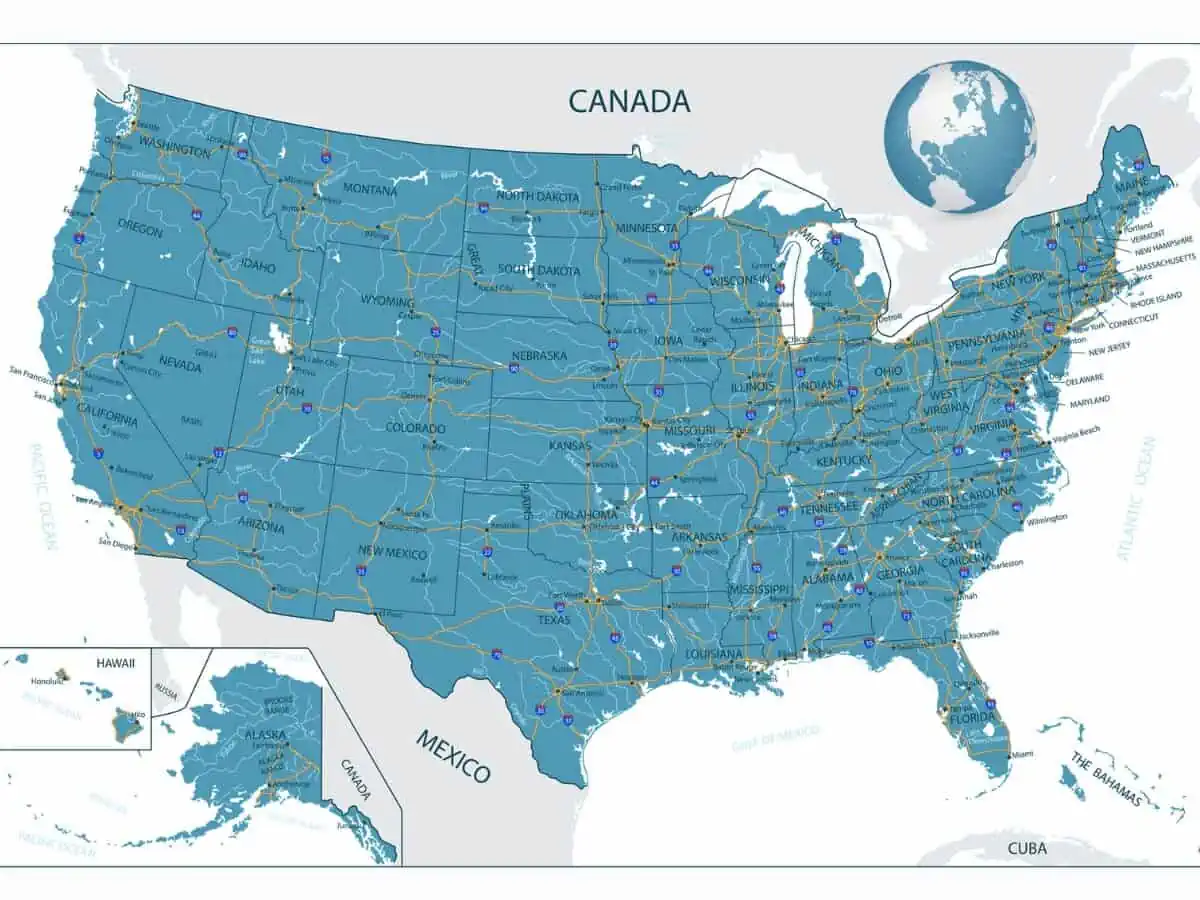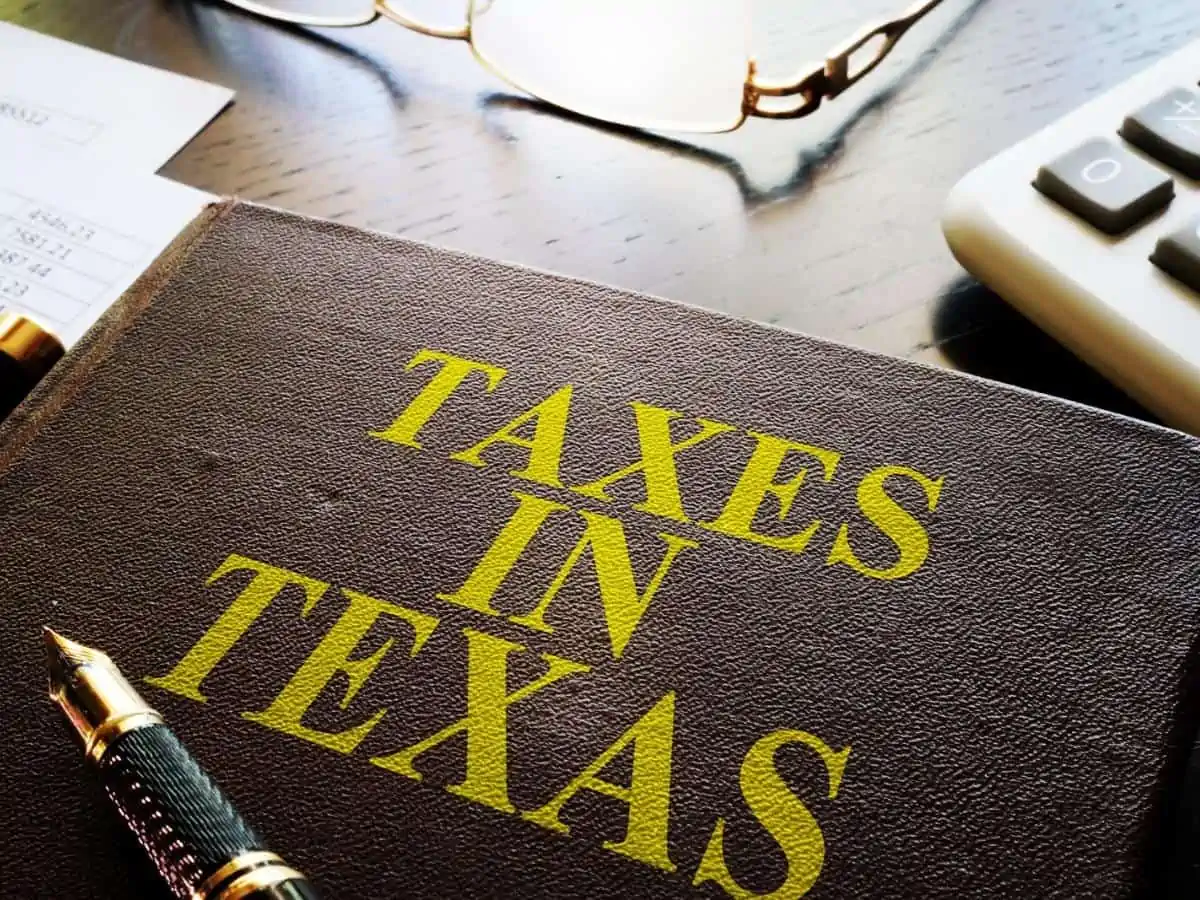Share the post "Live In Texas And Work In California (Pros + Cons)"
The world of work is becoming increasingly flexible, and many companies have adapted to having their employees work remotely, hiring freelancers and even offering employees hybrid remote and in-office positions. If you live in Texas but want to look beyond Texas for employment opportunities, you may wonder if it is possible to work in Texas and live in California.
Living in Texas and working in California is possible, but specific tax regulations can apply if you live in one state and work in another. If you work remotely, you may be able to avoid this. Those living in Texas but working in California may also be Californian residents.

Is It Possible To Live In Texas And Work In California?
You can live in Texas and work in California; it is possible to live in one state and another. The most significant concern people have when living in Texas and working in California is filing tax returns and the legalities of working in one state while living in another.
Other factors which you may want to consider when living in Texas and working in California include the following:
- Commuting costs
- Company culture
- Short-term projects’ tax implications
- Residency complications
Some advantages exist despite the complexity of living in Texas and working in California. If you are looking outside your state for employment, there may be better opportunities for a higher salary.
There may be more job prospects and career opportunities that may not be available in Texas, and an out-of-state job may offer a more flexible schedule for those looking for a work schedule that better suits their lifestyle.

Tax Regulations For Living In Texas And Working In California
The biggest concern residents in Texas have when working in California is the tax liability of being taxed in the state you live in and the state you work in, which means you’ll be taxed twice.
Another cause for concern is having to complete multiple tax forms in Texas and California to declare your income and resident taxes.
How Much Can I Work In California Without Being Taxed?
Most people who live in Texas and work in California may not be aware of the sixth-month presumption or may be aware of it but are misinformed about it. The sixth-month presumption is a regulation in California that states that if you spend more than six months in California, you will be declared a resident.
While this seems straightforward enough, this regulation is more complex, and many more factors go into determining residency in a state.
The best way to navigate this is to file your taxes with a tax professional with out-of-state tax experience.

Difficulties With Living In Texas And Working In California
Many employers in California look to hire employees outside of their state. This works exceptionally well for remote workers as they don’t have to travel to California to work. But employees who must attend work in California should be aware of the difficulties of working in one state and living in another.
Counting Days
If you’re traveling between Texas and California, you could be classified as a part-year resident in California. If you frequently travel to California for work, you should keep track of the time spent in California, even if you’ve been working remotely.
If you have spent significant time in California, you may be expected to pay income taxes.
Residency and Domicile
Each state has its own set of residency and domicile rules. To be classified as a statutory resident and taxed as a resident in that state, you must have spent 183 days in the state per year and own a permanent place to live in that state.
On the other hand, domicile is based on five factors: the amount of time spent in the state, the location of your business, where you live, where you incur your expenses, and where your family lives.
Determining residency and domicile can get complicated when employees spend more than half the year in one state. At the same time, they are domiciled in another state. In these cases, those residing in Texas but working in California may be liable to pay taxes in both states.
Multiple Tax Returns
If you reside in Texas but work in California, you may have to complete multiple tax returns. Employees living in one state and working in another have to file a “non-resident” tax return, which will specify that while you’ve worked in California, you don’t reside there.
If you lived in California for part of the year before moving to Texas permanently, you would be known as a part-time resident and then be required to file another return.
Some states have a reciprocity agreement that considers this, and you won’t have to file non-resident tax returns. Unfortunately, this isn’t the case when living in Texas and working in California.

Navigating Tax When I Live In Texas And Work In California
When you live in Texas but work in California, you may need to know all the difficulties surrounding tax submissions and the regulations you must follow. Navigating tax when living in one state but working in another can be challenging, but there are a few ways to get the most out of being taxed.
- State regulations on tax
- No income tax in Texas
- Filing your taxes in the correct order
State Regulations On Tax
If you’re living in Texas but working in California, the most important thing you’ll need to consider is residency and non-residency. In this case, you are a resident of Texas, but that doesn’t mean that you will indefinitely be exempt from paying taxes in California.
According to the Supreme Court of law, two states cannot tax you on the same income. Still, certain forms are required to complete your tax return to avoid being double-taxed.
No Income Tax In Texas
As a Texan resident, you aren’t required to pay income tax, but this doesn’t mean you won’t get taxed on your income in California.
When living in Texas but working in California, you must submit two tax returns, one for each state. Different regulations may apply if you work remotely for a Californian company but work from your home in Texas.
Filing Your Taxes In The Correct Order
People living in one state but working in another may not realize they must complete multiple tax returns in a specific order. The first tax return you should file is the tax return in the non-resident state, and the second one is in your home state.
The reason why it’s done this way is to determine the credit deduction you can claim for taxes already paid.

FAQs Living In Texas And Working In California
There are many pros to living in Texas and working in California but figuring out the tax implications, the lengthy time it takes to travel to California, and how it will fit into your lifestyle can take some time. You may have a few more questions regarding living in Texas and working in California, like if it’s worthwhile or too complicated.
Is Living In Texas And Working In California Complicated?
Living in Texas and working in California can be complicated. Some of the most challenging factors are the tax regulations and having to travel long distances to work. Even if you primarily work remotely and only need to visit the office occasionally, you may still have jet lag. Although Texas has different time zones, the center of Texas is 2 hours ahead of California.
Before deciding to live in Texas and work in California, you’ll need to evaluate your lifestyle and ensure this type of work schedule will fit into it.
Is Living In Texas And Working In California Worthwhile?
Living in Texas and working in California can be worthwhile if a better job opportunity is offered in California and if it is more feasible than a job you’re considering in Texas. Working in California may also come with additional expenses that your employer may not cover, which is also something to consider.
Living in Texas and working in California may not be for everyone, but it can offer you better employment opportunities.
References:
- tax tips for living in Texas and working in California: howstuffworks.com
- Living and working in different states: kiplinger.com
- Working in one state living in another -taxes: creditkarma.com
Share the post "Live In Texas And Work In California (Pros + Cons)"
Christian Linden is a seasoned writer and contributor at Texas View, specializing in topics that resonate with the Texan community. With over a decade of experience in journalism, Christian brings a wealth of knowledge in local politics, culture, and lifestyle. He holds a Bachelor's degree in Communications from the University of Texas. When he's not writing, Christian enjoys spending weekends traveling across Texas with his family, exploring everything from bustling cities to serene landscapes.











